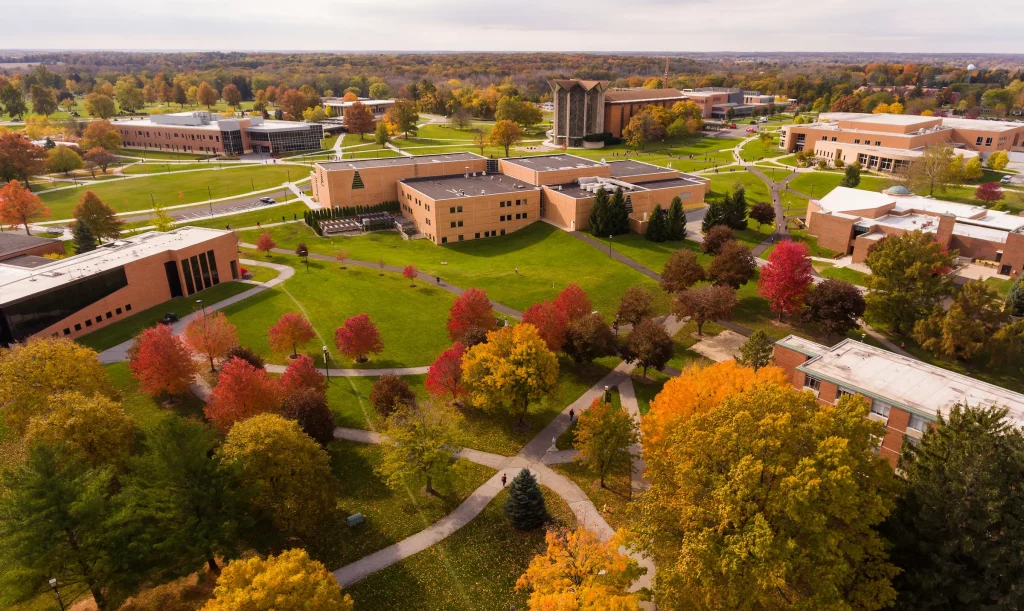Valparaiso University Appoints Dean to the College of Engineering
Valparaiso University has appointed Eric Johnson as Dean of the College of Engineering.
In his role as dean, Johnson will be responsible for the leadership, coordination, and guidance for the College of Engineering. Primary responsibilities will include budget development and management, strategic planning, faculty development, student recruitment and advising, college advancement, and the continued enhancement of constituent relationships, especially alumni relations.
“Eric’s dedication to Valparaiso University is evident through his active involvement in developing international engineering programs, organizing workshops for faculty on engineering education research, and serving on various committees, including international affairs, Faculty Senate, and the Master Plan Task Force,” Valparaiso University Provost Mark Schwehn said. “His contributions and commitment to the University, as well as his distinguished record as both a teacher and a scholar, make Eric an ideal candidate to lead the College of Engineering.”
Johnson has served as acting dean of the College of Engineering since July 1, 2012, and he has been on Valpo’s faculty since 1997 as professor of electrical and computer engineering, serving as chair of the Department of Electrical and Computer Engineering from 2008 to 2012. He was the director of the University’s study abroad center in Reutlingen, Germany, from 2004 to 2007, has been named the Brandt Professor of Engineering, and was awarded the Valparaiso University Alumni Association Distinguished Teaching Award in 2003.
Among his valuable contributions, Johnson counts his work developing international programs and organizing faculty workshops as highlights. He has also created an interactive game, Time Engineers, which continues to be used by middle school students to introduce them to engineering. His recent research, being conducted with Doug Tougaw, a fellow professor at Valpo, focuses on implementing programmable logic using Quantum Dot Cellular Automata, a type of quantum computing.
“I am very excited about the future of the College of Engineering, and I look forward to working with the faculty, staff and students to propel the college to new heights,” Johnson said.
One of the College of Engineering’s most notable distinctions is being the home to the James S. Markiewicz Solar Energy Research Facility, one of only four research facilities with a solar furnace in the United States and the only one at an undergraduate institution.
Recently, the College was recognized by the National Council of Examiners for Engineering and Surveying for the efforts of Valpo’s chapter of Engineers Without Borders. The award honored EWB-Valpo’s project “Maji for Masaera: Rehabilitation of a Man-Made Irrigation Canal,” which brought students and faculty from across disciplines together to work toward the common goal of reducing erosion and securing a clean and reliable water supply for nearly 2,500 villagers in northern Tanzania.
In addition, the Valpo chapter of the Society of Women Engineers won awards on local, regional, and national levels in 2012. The College of Engineering continues to be recognized as one of the nation’s finest engineering programs by U.S. News & World Report. Based on a survey of engineering deans and faculty members from throughout the country, Valpo’s College of Engineering tied for 17th in the nation among nearly 194 institutions where the highest degree awarded is a bachelor’s or master’s.
Hallmark components of engineering education at Valpo include a focus on communication and leadership skills, most notably through the renowned Dale Carnegie course, which saw its 100th student last year.
Johnson teaches classes in digital systems design, computer architecture and VLSI design, with research focuses in nanotechnology, international engineering, and engineering education pedagogy. He is professionally affiliated with the Institute of Electrical and Electronic Engineers, the American Society for Engineering Education, Sigma Xi, Eta Kappa Nu, and Tau Beta Pi. He earned his bachelor’s degree at Valpo (1987) and his master’s and doctorate degrees at Notre Dame (1994, 1997).
Visit valpo.edu/engineering for more information about Valpo’s College of Engineering.
